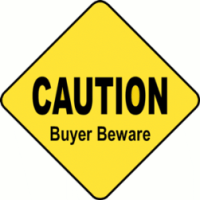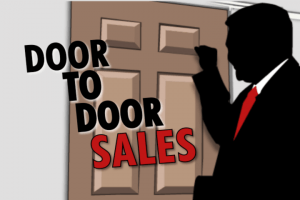Before You Buy
If you are considering purchasing an alarm system, do your homework first! By taking a little time now, you can avoid potential problems later.
FARA and NESA recommend that consumers consider the following BEFORE selecting a systems contractor or buying a system.

Click on an item below for more info on that topic
Be an Educated Consumer
In order to be an informed consumer you need to understand the different components of a system. The best systems professional will help you determine what components you need to serve your home or business.
Your systems professional should discuss what options fit your home and/or business and lifestyle, for instance, do you have small children, pets, are you away from your home for long periods of time, do you have expensive items such as jewelry you want to protect.
All of these things may factor in to determine which system is best for you. You may decide to install a system for a specific purpose but keep in mind you can link other devices into your system such as security, fire, entertainment, controlled heating and lighting, and carbon monoxide detection.
There can also be cost savings to combine these features versus installing them at a later date.
It all depends on what you want and what suits you best. The best systems professional will customize your system for your needs!
Be a smart consumer!
- Know what you want (or at the very least, what questions to ask to help you determine what is best for you), what you can afford and what your responsibilities will be as an alarm user.
- Match up your expectations with the alarm company that comes closest to, or matches exactly, your specific needs and desires.
- You want your burglar alarm system to bring you security and peace of mind; isn’t that worth a small investment of your time on the front end so you won’t live to regret it on the back end?
- Ask the companies if they have appropriate state and/or local licenses, if required.
- Ask the companies if they conduct any pre-employment screening.
- Contact your local police department’s Crime Prevention Department, state licensing agencies, Consumer Protection Agencies, and the Better Business Bureau.
- Ask your insurance agent, friends, family or neighbors for referrals.
- After you’ve narrowed the field to three or four alarm companies, ask for the name of the person who will call on you. It is best to plan the appointment time when all those involved in the decision are present.
- When he/she visits, ask to see some company identification.
- Ask each alarm company representative for an inspection, recommendation and a quote in writing. Use a checklist to compare different packages and price quotes
Find the Right Company
Investigate the Seller 
- Get several estimates & compare.
- Check the Better Business Bureau or consumer affairs office about the company.
- If the salesperson claims to be from your alarm company ask for their license or call the company to verify.
- Contact your local Consumer Affairs Office, Better Business Bureau or state Attorney General’s Office for information on any alarm company with which you are considering doing business. Consumer offices will often maintain records of filed complaints and will provide you with information on the basis for the complaint, as well as its resolution.
- Contact your Police Department/Sheriff’s Office to find out if there are any permit/registration requirements for alarm systems, as well as any fines or fees that may be imposed for false alarms.
- Contact your state or local Licensing Bureau to determine if the alarm company with which you are considering doing business has all of the required licenses, bonds, insurance, etc. (if applicable).
Professional Install vs. Do it Yourself
Before you decide to install an electronic system yourself consider these factors:
- Are you aware of all the codes and standards that govern how your system is installed and operated?
- Are you aware of all of the options and features of the equipment you plan to install?
- Have you considered the value of your time to learn about and install the system in calculating the cost of your do it yourself installation?
- Is the equipment you have access to at retail outlets of equal quality to the professional grade equipment?
- Do you own all the tools you will need to install, test and calibrate the equipment you plan to use?
- Will your insurance policies cover you if you are injured or do damage to your property during the installation?
- Does the company you bought the equipment from provide sufficient help in the event something goes wrong during the installation?
Why Take a Chance? Use a Licensed Professional
Individuals may be unlicensed because they may not:
- meet financial requirements
- be able to pass a background check
- meet experience requirements
- meet insurance requirements
If your state or locality does not require a license ask the company for its policies on background checks and education for its employees.
Help Locating the Right Company
Best source is your state or local association in the US or the Canadian Security Association in Canada.
-
- Here are some assocations that have supported FARA or NESA
Investigate the Offer
- Take your time making a decision.
- Read the information carefully to be sure you know what the quoted price includes.
- Know your responsibilities and those of your alarm company before you buy or lease!
- Read and fully understand your entire contract before you sign on the dotted line. Remember, ignorance is no defense! If you don’t understand something, be sure to ask questions until you do.
- Nothing that has been guaranteed to you orally will be enforceable unless it is in writing in the contract.
Door to Door Sales
Is That Knock On Your Door Cause For Alarm?
If you are home during the day, you are more likely to meet door-to-door salespersons. While some door-to-door salespersons are honest, the chances are excellent that whoever answers the door is about to be ripped off. Door-to-door con artists are charming and friendly. Their smiles are inviting. They are successful because they seem so honest. Door-to-door con artists often:
- Greet you by name to seem friendly. (They may have seen your name on your mail or in a city directory.)
- Use tricks to get into your home. They might imply they are from your alarm company and need to test or upgrade your system. Don’t let a creative story relax your caution on whom you let in your home.
- Offer a free upgrade or free system– Check the fine print you will pay for the system somehow.
- Pressure you to make a decision. They may say the offer is only good that day.
Local license often required A salesperson who visits your home may be required to have a peddlers, sales or solicitor’s license or permit. Check with the consumer protection office in your locality for more information. Consumers have registered many complaints
- Customer unwittingly agreed in contract to pay for fines charged to the unlicensed company and/or lengthy terms.
- Companies claim to represent the customer’s existing alarm company, and falsely tell the customer that they need an upgrade. After the customer signs, they become obligated to two companies for the same services.
- Companies claim to offer a “free” system when in reality customers are committing to an extended contract that has a built in fee for the equipment.
- Accounts are sold to another company preventing the customer from getting proper service.
Ask Questions
Knowing what questions to ask is half the battle.
However, if you’ve never had an alarm system before, how can you be expected to know what is important?
- Do you know the difference between a local and a monitored alarm system?
- How about the difference between a glass break and a motion sensor?
- What are “panic” features anyway?
- Is there a cancellation policy?
- Purchase vs. lease?
- Does the company do its own monitoring or does it contract out to a third-party monitoring center? Is any of this even relevant?
- FARA has published a Consumer Guide to Purchasing a Burglar Alarm. This guide provides you with fundamental information that you should have in order to make an informed decision. Use the handy chart, which lists questions you should ask of each potential company and record the answers to your questions for future reference.
Comparison Shop
- Select two or three different alarm companies from which to receive written quotes.

- Comparison shop for things such as best price, features you want, most favorable monitoring terms and conditions and for alarm companies that take false alarms seriously and have false alarm reduction plans in effect.
- Don’t be afraid to ask each potential alarm company how their specific alarm system and its installation will avoid potential false alarms.
Fit Your Need
Select the System that Fits Your Needs
You may decide to install a system for a specific purpose but keep in mind in you can link other devices into your system such as security, fire, entertainment, controlled heating and lighting, and carbon monoxide detection. There can also be cost savings to combine these features versus installing them at a later date. It all depends on what you want and what suits you best. The best systems professional will customize your system for your needs!
Right To Cancel
YOU HAVE A RIGHT TO CANCEL
You can get out of a door to door sales contract and receive a full refund if you change your mind within three business days. This is called the cooling-off period.
Along with your contract or receipt, you should be given two copies of a cancellation form that you need to sign, date and mail.
You don’t have to have any reason for canceling.
If you didn’t get a cancellation form, write a letter.
Because the seller broke the law by not giving you a cancellation form, you have extra time to cancel.
You still must cancel in writing.
The sooner you do this, the better.


